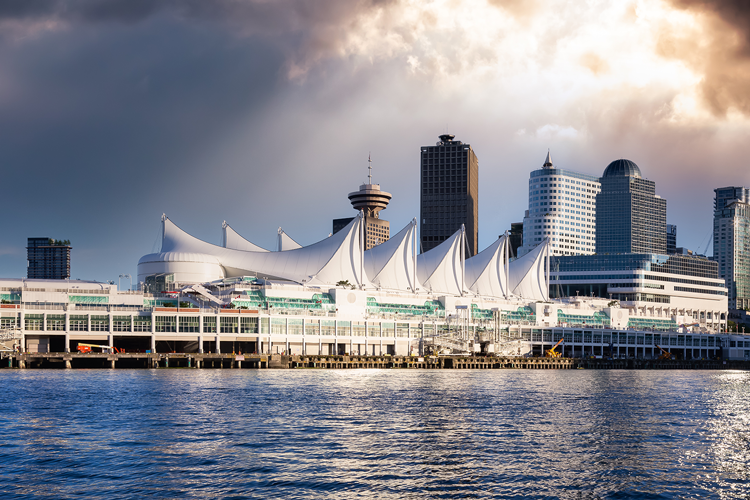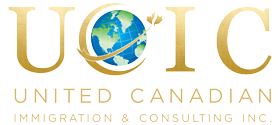Immigrate
Canadian Government is targeting to welcome more than 400,000 new immigrants per year, starting from 2021, in its 3-year Immigration Levels Plan. Immigrants to Canada will benefit from world class education, high quality of life and foundations of Canadian life including freedom, equal opportunity for all. The open and dynamic immigration system of Canada offers several different pathways to immigrate to Canada.
EXPRESS ENTRY
Express Entry is an innovative system introduced in early 2015, where skilled foreign nationals can apply for permanent residency of Canada by entering a pool of candidates. Candidates are awarded points based on the Comprehensive Ranking System (CRS) according to criteria such as age, education, language skills, work experience. The higher your points are, the better chance you have to receive an Invitation to Apply (ITA) and become a permanent resident of Canada.
There are three economic immigration programs under Express Entry:
- Federal Skilled Worker Program
- Federal Skilled Trades Program
- Canadian Experience Class
To apply under Express Entry, you must have at least one year Canadian or foreign work experience under the National Occupational Classification (NOC) skill level O, A or B and meet other criteria of each program.

Provincial Nominee Program (PNP)
Each province and territory in Canada has its own immigration programs that target different groups (streams) to settle in the province or territory. A province may have various streams but tend to fall into four groups: skilled workers, semi-skilled workers, entrepreneurs, and international graduates. Each provincial stream has its own criteria for choosing eligible candidates and application process. You can apply directly to a PNP stream. Or if the stream is aligned with Express Entry, after being nominated by the province, you will receive additional 600 points in the Comprehensive Ranking System (CRS) and is practically guaranteed in receiving an Invitation to Apply (ITA) for permanent residence.

FAMILY SPONSORSHIP
As a commitment of the Government of Canada to keep families together, Family Sponsorship program offers opportunities for family reunion for Canadian citizens and permanent residents and their family members. Under this program, Canadian citizens and permanent residents can sponsor their spouses or common-law partners, parents and grandparents, and dependent children to become permanent residents of Canada.

CAREGIVERS
If you are a caregiver, there are pathways to become permanent residence of Canada through the Home Child Care Provider Pilot and Home Support Worker Pilot which were launched in June 2019 to replace previous, closed Live-in Caregiver program.
Both Pilots allow candidates who do not have any experience in Canada, to get open work permits (occupation-restricted) to come to Canada to get work experience they need to be eligible for permanent residence if they meet other eligible requirements. Their spouse/common-law partner and dependent children can also accompany to Canada on open work permit and study permits.
Employers hiring a caregiver from overseas under both Pilots will no longer need a Labour Market Impact Assessment.
BUSINESS CLASS
There are a number of options to immigrate to Canada offered by the federal and provincial governments, for ones who have business management experience.
Start-up Visa Program
The Start-up Visa is a Program offered by the federal government, which targets immigrant entrepreneurs to build innovative businesses in Canada. The business must be able to create jobs for Canadians and compete on a global scale. Candidates need to submit their business ideas to designated organizations approved in the program, to be reviewed. The business idea must get support from at least one designated organization to apply for the Start-up Visa Program.
Provincial Entrepreneur Programs
Each Canada’s province has their own program for immigrant entrepreneurs who want to settle in their province. Each program has different requirements on net worth, investment amount, experience, business plan, exploratory visit and so on. We can assess your business immigration options based on your qualifications, financial capacities and interests.
AGRI-FOOD PILOT
In May 2020, the Government of Canada introduced the three-year Agri-Food Immigration Pilot Program to provide temporary foreign workers in the eligible occupations and industries in agriculture and food processing with a pathway to Canadian permanent residence.
The eligible industries and occupations (outside of Quebec) under the Pilot include:
- Retail butcher, industrial butcher, food processing labourer in meat processing
- Harvesting labourer in mushroom production, greenhouse, nursery and floriculture production
- General farm worker in mushroom production, greenhouse, nursery and floriculture production or livestock raising
- Farm supervisor, specialized livestock worker in meat processing, mushroom production, greenhouse, nursery and floriculture production or livestock raising
Candidates under this program must have 1-year full-time work experience in Canada in eligible industries and occupations, a full-time job offer and meet other requirements in language, education and settlement funds.
ATLANTIC IMMIGRATION PILOT
Launched in 2017, the pilot offers a pathway to Canadian permanent residence for skilled workers and international graduates who want to settle in one of four Atlantic Provinces – Nova Scotia, New Brunswick, Newfoundland and Labrador and Prince Edward Island. To apply, candidates are required to receive a job offer from a designated employer in the four Atlantic Provinces and meet other language, education, work experience and funding requirements. There are 3 programs in the pilot, and candidates can only apply through 1 program, even if they are qualified for more.
- Atlantic International Graduate Program
- Atlantic High-skilled Program
- Atlantic Intermediate-skilled Program

REFUGEES
The Government of Canada offers refugee protection to some people in Canada if they could face dangers when coming back to their home country. To make a refugee claim, the applicant must be in Canada and is not subject to a removal order. If the claim is accepted, the applicant will get “protected person” status which allows them to stay in Canada and apply to become a permanent residence of Canada. If rejected, the applicant will have to leave Canada.
A person living outside Canada can only come to Canada as a refugee if being referred by the United Nations Refugee Agency (UNHCR) or a private sponsorship group.
Humanitarian and Compassionate Grounds (H&C)
Humanitarian and Compassionate grounds only apply to individuals with exceptional cases and would not normally be eligible to become permanent residence of Canada. Applications under H&C grounds are assessed on a case-by-case basis, based on 4 factors: How settled the person is in Canada; General family ties to Canada; The best interests of any children involved, and What could happen to the applicant if the request is not granted.
CITIZENSHIP
You can apply for Canadian citizenship, if you are a permanent resident who have lived in Canada for at least 3 out of the last 5 years. You also need to prove your language skills and pass the citizenship test.
Interested in any of the following?
Applying for Canadian permanent residency
Sponsoring your family member to get Canadian permanent residency
Assessing if you are qualified for Canadian permanent residency

